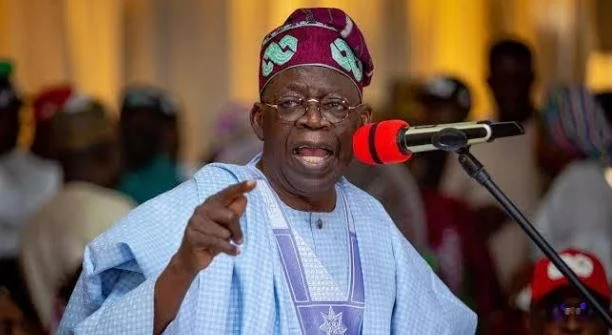The Independent National Electoral Commission (INEC) has officially declared Bola Ahmed Tinubu, the candidate of the All Progressives Congress (APC), as the winner of the highly contested 2023 presidential election in Nigeria. The announcement was made in the early hours of Wednesday, March 1, 2023, at the National Collation Centre in Abuja.
INEC Chairman Announces Election Result
Professor Mahmood Yakubu, the Chairman of the Independent National Electoral Commission (INEC), formally announced Tinubu’s victory after the collation of results from all 36 states of the federation and the Federal Capital Territory (FCT). According to Yakubu, Tinubu secured a total of 8,794,726 votes, the highest among the 18 candidates who contested the election.
The APC presidential candidate also achieved over 25 percent of votes in 30 states, surpassing the constitutional requirement of 25 percent in at least 24 states. This made him eligible for declaration as president-elect under Nigeria’s electoral laws.
Dailyoracleng.com reports that the atmosphere at the National Collation Centre was filled with anticipation as party agents, observers, and journalists awaited the official declaration.
Opposition Candidates’ Performance
The People’s Democratic Party (PDP) candidate, Atiku Abubakar, who is a former Vice President of Nigeria, came second with a total of 6,984,520 votes.
Closely following was Peter Obi of the Labour Party (LP), who garnered 6,101,533 votes, placing him third in the election. Meanwhile, Rabiu Musa Kwankwaso of the New Nigeria Peoples Party (NNPP) secured the fourth position with 1,496,687 votes.
INEC’s announcement further highlighted that only the top four candidates won in at least one state each. Tinubu, Atiku, and Obi each won in 12 states, while Kwankwaso clinched victory solely in Kano State.
Constitutional Clarification
Although many political observers focused on the number of states won, the Independent National Electoral Commission clarified that winning a majority of states is not a constitutional requirement to emerge as president. Instead, the law mandates that a candidate must have the highest number of valid votes nationwide and secure at least 25 percent of the votes cast in a minimum of 24 states. Tinubu met both requirements.
Nigeria’s Political Landscape Shifts
The declaration of Bola Ahmed Tinubu as the winner marks a significant moment in Nigeria’s democratic journey, as he becomes the successor to President Muhammadu Buhari. His victory is set to shape the country’s political and economic direction over the next four years, with stakeholders at home and abroad closely monitoring the unfolding developments.







